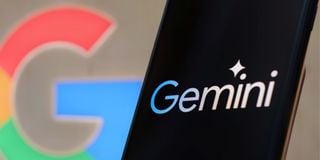Newbie artificial intelligence has a huge impact on future of search

Google’s next-generation artificial intelligence model Gemini. Google’s reputation as a reliable information source will remain a huge advantage in the future of AI search.
Google recently launched Gemini, initially called Bard, its next-generation artificial intelligence (AI) model, with the latest version, Gemini 1.5 pro, released for free testing last month.
Gemini, like ChapGPT, can use text to answer questions and even generate images. The latter has caused problems for Google in recent days as Gemini generated inappropriate and misleading images, leaving the tech giant facing the wrath of an angry online community. The errors apparently spread to Gemini’s text answers, including one in which it replied to a prompt that there was no right or wrong when asked if Elon Musk posting memes on his platform X was worse than Adolf Hitler killing millions of people. Musk, responding to the story on X, described Gemini’s responses as “extremely alarming” given that the tool is to be built into Google products used by billions of people.
To illustrate the gravity of the absurd responses generated by Gemini, we need to understand that Google is the world’s largest holder of data due to the billions of people who use its platforms. Generative AI sifts through the datasets available to it to come up with answers to queries.
But I digress. This piece is not about Gemini but how Google’s search engine is faring in the face of AI-driven digital transformation. While search engines retrieve and rank web pages based on keyword matches, AI searches are able to respond to queries using their natural language capabilities and create concise answers without necessarily providing links to other web pages.
AI-powered search engines, such as Arc and Perplexity, use language models to recognise user intent from contextual clues and conversations and can, therefore, generate responses that are tailored to the queries. By generating concise answers to queries, AI search engines save users time by eliminating the need to comb through multiple web pages to find the information they are looking for.
Technically, Google is far ahead in the AI race, given that it develops its AI chips, has a cloud network, which is essential for AI processing, and, most importantly, access to a lot of data and a huge user base. However, as was the case with Gemini, the accuracy and appropriateness of AI-generated responses are not yet on a par with human-created references such as the content of web pages.
There’s also the question of utility and accuracy over time. Google enjoys strong brand affinity and familiarity with ‘googling’ as a synonym for web search. This, coupled with Google Search’s PageRank algorithm, which ranks results (web pages) in terms of relevance and importance, contrasts AI search engine models that tend to prioritise popularity over relevance.
While AI search will, hopefully, continue to grow in popularity as more AI features are incorporated into mainstream search, Google’s reputation as a reliable information source will remain a huge advantage that will take its AI search competitors a while to counter.
- Mr Oluoch is a digital journalist at Nation Media Group. [email protected].





